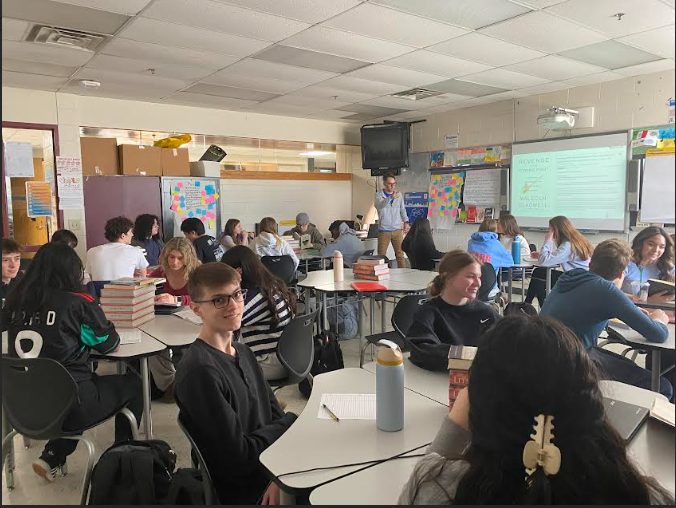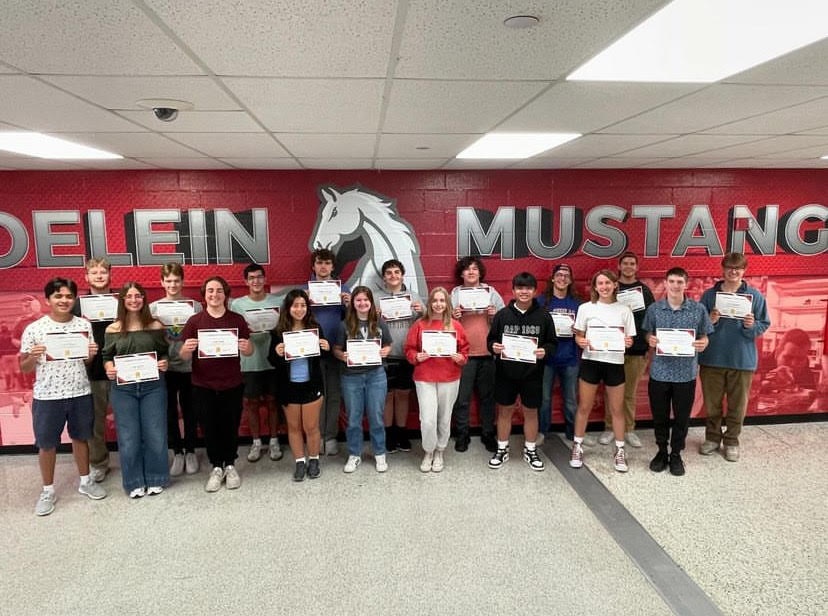Electives are versatile classes that allow students to explore themselves and their individual interests. Electives are like a platter, students get to pick what they like and see if it works for them or not, if they like something, they can take it or otherwise leave it.
Tom Buenik, the Department Chair of Guidance, shared some of the most popular electives at MHS. He stated that core electives include, “Project Lead the Way, Honors Anatomy, fourth year math, fourth year science, Psychology, and Sociology,” while non core electives include “Food and Nutrition, and business and music courses, specifically Band and Show Choir.”
Electives that did not run this year due to the low enrollment include Honors Graphic Design Studio, Advanced Media 2, Sports and Entertainment Marketing, Latino Literature, Residential Construction, Intermediate Guitar, STEM class, AP Physics 2, Contemporary U.S & International Problems, Honors Spanish 5, and Strength 4.
Neil McCarthy, a social studies teacher at MHS, previously taught an elective titled Modern Latin America. It included everything about Latin American Culture including the music, dance, and food. He shared that “eventually the numbers started dwindling” so they could not run the class anymore.
America at War was another class McCarthy previously taught that stopped running.
McCarthy said, “It was mystifying to me why the course stopped running. It was a popular class.” He added, “After we had the C- Wing, there were entrepreneurial classes… to increase the enrollment in those classes, maybe the enrollment in another department was reduced.”
McCarthy said that, across the country, many social science departments at the university level are dying. Most of the money is going into the STEM fields globally. As a result history courses are becoming less popular and people are losing their foundations.
McCarthy’s ambition as a social studies teacher was to take Modern Latin America forward and have a similar class for each continent like “Modern Asia and Modern Africa.” He believed, “If you build it, they will come.”
He clarified that, “I understand school districts are not always full of cash so school boards have to make tough decisions, my problem is that it is too often that the humanities and the arts that get a first chopping block.”
McCarthy acknowledged the importance of STEM classes and the future that they provide to students, however, he believes that there should be more opportunities for students to explore the social science area as it makes them responsible citizens.
Electives need funding, staff, space and student interest to run. Some electives like McCarthy’s America at War and Modern Latin America were not able to run because of some missing factors.
Not all classes stop running for the same reasons. Sometimes, classes don’t run because of a change in staff schedule.
Buenik explained, “Our district tells us, here is how many staff members we can hire and if we try to create positions within the building we have to look at what teachers are certified to teach and what they have taught in the past. When we allocate teachers to courses, we have to prioritize. Core classes are held up more than electives.”
Buenik further mentioned that some seniors graduate early and as a result there are fewer students taking electives. Other students might be taking several AP classes which leaves no space in their schedule for electives.
Study halls can also take up the space in students’ schedules. Although study halls are great when utilized well, students lose the chance to explore electives because of them.
Tech campus creates a wide variety of options of pathways for students to choose from like culinary arts, firefighting, and cosmetology. About 100 students from MHS attend tech campus every year, but those classes also take course scheduling space away from electives provided here at the high school.
Buenik said, “Our students need to explore more…they haven’t had a chance to explore because they only have one elective period after taking a language class.” He added, “If they don’t take the other core classes, they will not get into a good college.”
Mike Souza, the Associate Principal of Operations, shared, “I think overall we have quite a few offerings, we have a lot of options, that is why some of those courses don’t run because students choose some options over others. We try to give students what they want.” However, Souza added, “We have to make decisions for the best of the building and best of the teachers… we want to make it a viable course which is based on enrollment.”

